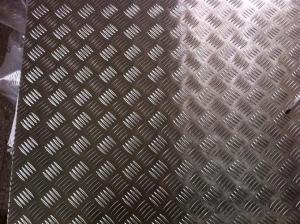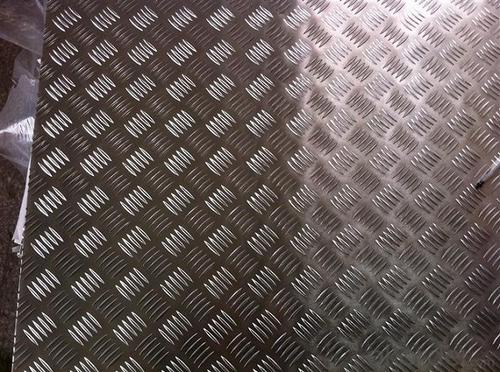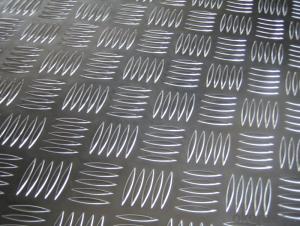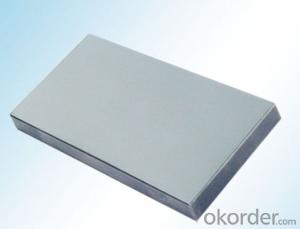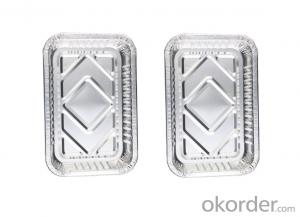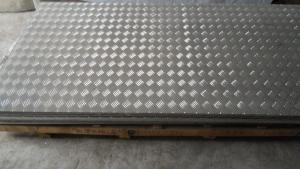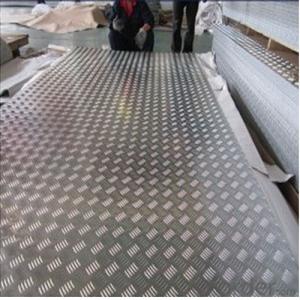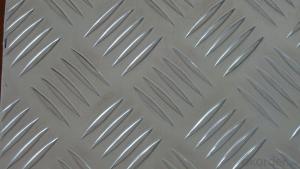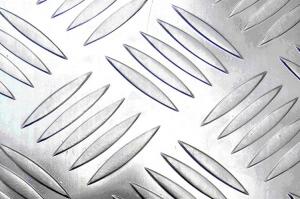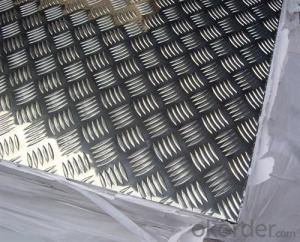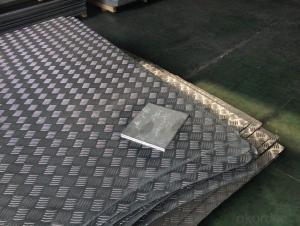Painted Aluminum Sheets Oregon - Five Bar Anti-Slip Bus Aluminum Tread Plate
- Loading Port:
- Shanghai
- Payment Terms:
- TT OR LC
- Min Order Qty:
- 2.5
- Supply Capability:
- 5000 m.t./month
OKorder Service Pledge
OKorder Financial Service
You Might Also Like
Specification
Five Bar Anti-slip Bus Aluminum Tread Plate Manufacturer
lProduct Information
1.Alloy :1060,1100,3003,5052,5754,6061,6063,6082
2.Temper: H14,H18,H12,H16,H22,H26,H24,T3,T4,T6
3.Brand: CMAX
4.Thickness: 0.8-10.0mm. width: 20-1650mm. length:500-16000mm
5.Tolerance: thick +/-0.02mm, width +/-0.5mm.
6.Pattern:One bar, Two bars, Three bars, Five bars and Diamond.
7.Surface brightness: bright surface or normal surface.
8.Application: trailer, truck, decking, flooring, stairs, steps, building industry.
9.Loading port: Shanghai port, or main port in China
lPackaging & Delivery Details
Packaging: Standard seaworthy packing
Delivery: About 25 days after received your advance
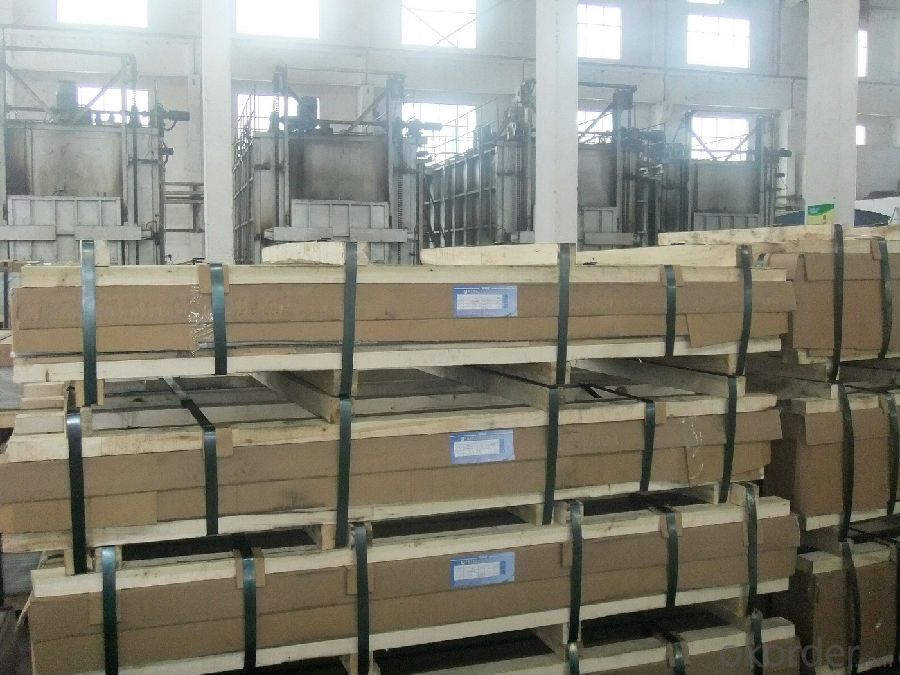
lCompany Profile
CNBM International Corporation, China National Building Materials (Group) Corporation, is one of the largest companies in China building
material & equipment industry, with 42,800 employees and sales in 2005 of US Dollar 4.395 billion. In 2006, China National Building Material Company Limited was listed on Hong Kong Stock Market with the stock code as 3323.
CNBM has been involved in aluminium products for about a decade. With advanced technology and equipment, our products have been sold to the worldwide including America, Europe, as well as South Asia, etc.
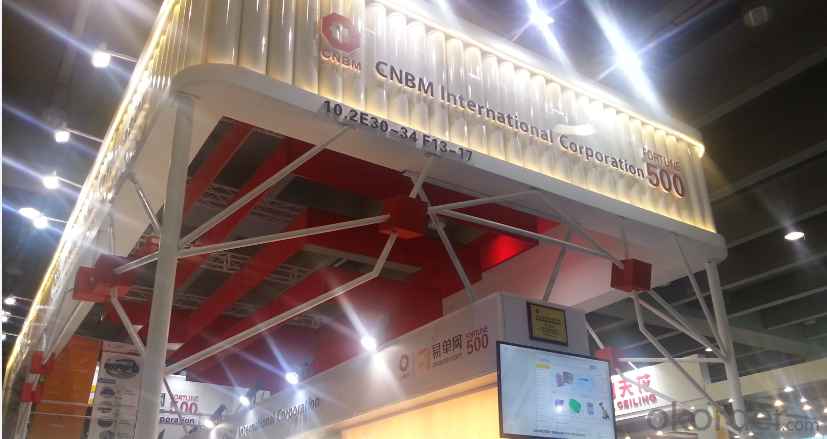
lProduct Images
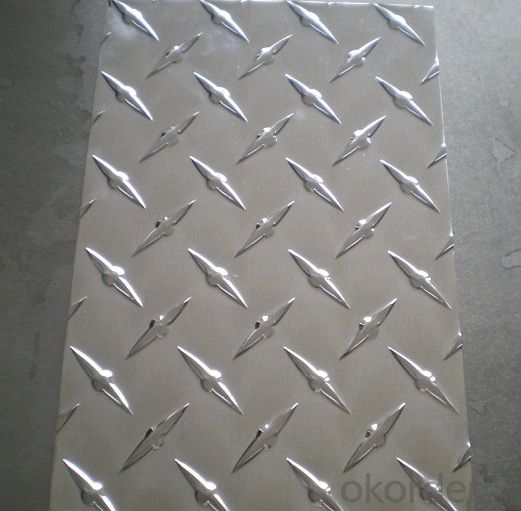
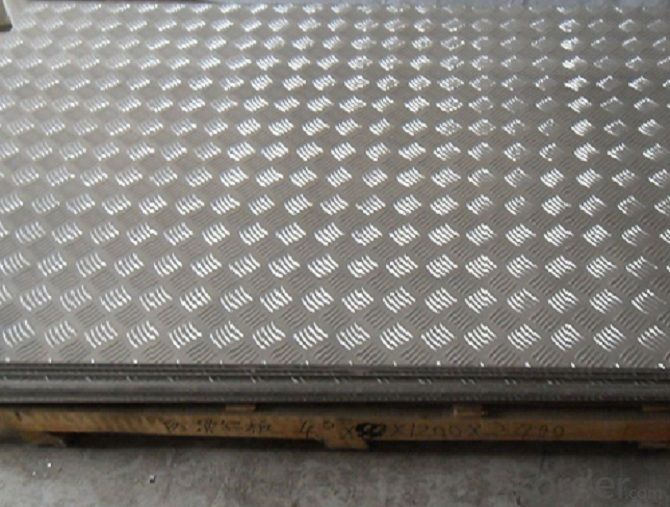
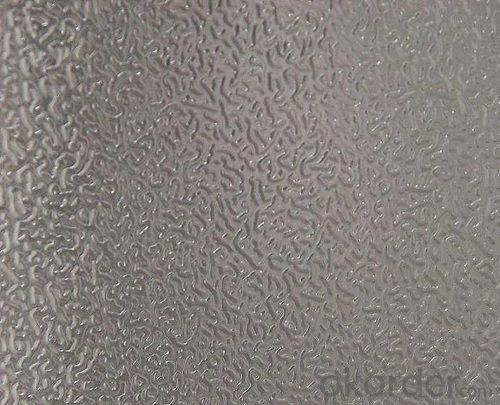
lCertificates
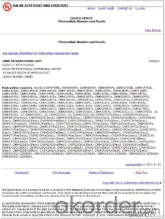
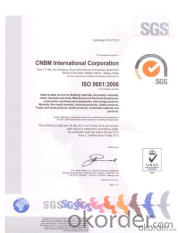
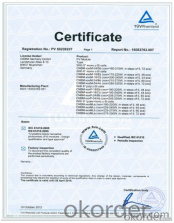
lFAQ
Q: Do you provide free samples?
A: Yes, free samples will be sent to you on freight at destination.
Q: Can I get your latest products catalogue?
A: Yes, it will be sent to you in no time.
Q: What is the MOQ?
A: 2.5 tons
- Q: Can aluminum sheets be used for modular construction?
- Absolutely, modular construction can utilize aluminum sheets. Aluminum proves to be an adaptable and lightweight substance that presents numerous advantages for modular construction undertakings. Its resilience, resistance to corrosion, and impressive strength-to-weight ratio render it appropriate for a wide range of structural applications. The malleability of aluminum sheets permits them to be effortlessly fabricated and molded into various forms and dimensions, enabling flexibility in both design and construction. Furthermore, aluminum's recyclability positions it as an environmentally conscious selection for sustainable construction practices. All things considered, aluminum sheets stand as a feasible choice for modular construction given their robustness, durability, and versatility.
- Q: Could copper wire be welded with aluminum sheet?
- Copper wire could be welded with aluminum sheet, and it needs to use low temperature welding method, if copper wire is in the unit of millimeter and aluminum sheet is also in the unit below 1 mm, you can use electric soldering iron to heat it as hybrid welding and choose low temperature welding materials, you can use WEWELDING M51 welding wire and M51-F flux to complete welding. As for the large aluminum sheet, you can take liquefied gas multihole lance as heat source, then choose the same low temperature materials as welding materials, you can use WEWELDING M51 welding wire and M51-F flux to complete welding. Welding fundamentals of these two welding methods: both of them are use heatable heat source to heat the matrix to 179 degree, the melting point of WEWELDING M51, then use matrix’s heat conduction to melt welding wire, completing welding. The process of melting welding wire is the process of smearing the welding wire with flux into welding area, melting welding wire completely depends on matrix’s heat conduction.
- Q: Are the aluminum sheets suitable for signage or advertising purposes?
- Aluminum sheets are an excellent choice for signage and advertising purposes due to their high suitability. The versatility and durability of aluminum make it resistant to rust, corrosion, and weathering, which is ideal for outdoor use. Furthermore, its lightweight nature facilitates effortless installation and transportation, while the smooth surface adds a touch of professionalism and sophistication. The customizable nature of aluminum sheets allows for easy cutting, shaping, and engraving, enabling designers to create captivating signs and advertisements. Additionally, aluminum sheets can be directly printed on or laminated with vinyl to achieve vibrant and long-lasting graphics. In summary, the remarkable properties of aluminum make it the perfect material for signage and advertising purposes.
- Q: We just bought a house with aluminum wiring and we knew about it in the inspection report, but everyone kept telling us it's no big deal. There was so much going on and I didn't look into it myself and now I just surfed the web on it and I am filled with anxiety! Please help! Did we make a huge mistake? How common are the dangers? Also, my insurance company didn't ask me about wiring, but some sites said that they don't cover aluminum wiring. Should I ask them? I am so overwhelmed and scared. I do not want a fire for my family!
- All of these answers are good. There is a concern. I would suggest that if there is a question of security -- that you slip ( or get an electrician) to slip each switch and outlet out of the wiring box and tighten the connections. As for the racoons, there are simple and pretty much low cost (under 30 bucks, voltage sensors at your local electrical supply, and maybe at Home-Depot. These really nice devices sense the presence of AC electricity in the wall, even locating the actual point where the electricity stops at a break! This is a do-it=yourself project.
- Q: How to carry out drawing process in aluminium plate
- The process of repeated scraping is an essential step in the production and processing, and we can not forget. The second is in the process of the film, to make the drawing processing after more shiny, look more beautiful, the film is the key technology in the field of production and processing. Should be careful, careful, can not be careless, such a careful and responsible work attitude, for drawing aluminum plate each place to do the details of the treatment, so that the filaments will be dense and bright.
- Q: I heard somewhere that when aluminum is heated, it releases something that is a known cause of Alzheimers. Is this true? I have a homemade cooker made of aluminum and I don't want Alzheimers.
- Aluminium and aluminium compounds are ubiquitous and we consume up to 50mg a day. The fact that aluminium is present isn't necessarily an indication that it is the cause of Alzheimers, and the consensus is that there are a combination of factors at play including genetic factors. However, there has been research which reveals amyloid plaques, which are protein compounds and aluminium and tangled synapses, which are part of the neuronal network. This is leading researchers to suspect that there is a causal link.
- Q: How are aluminum sheets cut or shaped?
- Aluminum sheets can be cut or shaped using various methods such as shearing, laser cutting, waterjet cutting, or CNC milling. Shearing involves using a specialized machine to cut the sheet along a straight line. Laser cutting utilizes a high-powered laser beam to precisely cut or engrave the aluminum sheet. Waterjet cutting involves the use of a high-pressure jet of water mixed with an abrasive material to cut through the sheet. Lastly, CNC milling uses computer-controlled machines to remove material from the aluminum sheet and create intricate shapes or designs.
- Q: Are aluminum sheets suitable for use as materials for windows and doors?
- <p>Yes, aluminum sheets can be used for windows and doors. They are known for their durability, low maintenance, and resistance to corrosion and weathering. Aluminum windows and doors are energy-efficient, lightweight, and offer excellent security. They can also be easily customized in terms of size and design, and are often used in modern architecture for both residential and commercial buildings.</p>
- Q: Are aluminum sheets suitable for heat exchangers?
- Aluminum sheets, indeed, are well-suited for heat exchangers due to their numerous advantageous qualities. Firstly, aluminum, being a highly conductive metal, facilitates efficient heat transfer, effectively enhancing the performance of the heat exchanger. Furthermore, its lightweight composition simplifies the handling and installation process within heat exchanger systems. Moreover, aluminum exhibits remarkable resistance against corrosion, guaranteeing the heat exchanger's endurance and sturdiness. Additionally, the malleability of aluminum sheets enables effortless shaping and sizing, thus enabling customization for various heat exchanger designs. In summary, aluminum sheets provide exceptional thermal conductivity, corrosion resistance, and versatility, rendering them a fitting choice for heat exchanger applications.
- Q: This question asks for a comparison of the positive and negative aspects of utilizing aluminum sheets in building construction.
- <p>Aluminum sheets in construction offer several advantages, including lightweight properties that reduce structural load, excellent corrosion resistance, and durability which minimizes maintenance needs. They are also energy-efficient, reflecting heat and reducing cooling costs. Additionally, aluminum is recyclable, contributing to sustainability. Disadvantages include higher initial costs compared to some traditional materials and potential for dents or damage from impacts. Aluminum can also be noisy when walked on, and it may require additional insulation for thermal performance, adding to the overall cost.</p>
Send your message to us
Painted Aluminum Sheets Oregon - Five Bar Anti-Slip Bus Aluminum Tread Plate
- Loading Port:
- Shanghai
- Payment Terms:
- TT OR LC
- Min Order Qty:
- 2.5
- Supply Capability:
- 5000 m.t./month
OKorder Service Pledge
OKorder Financial Service
Similar products
Hot products
Hot Searches
Related keywords
